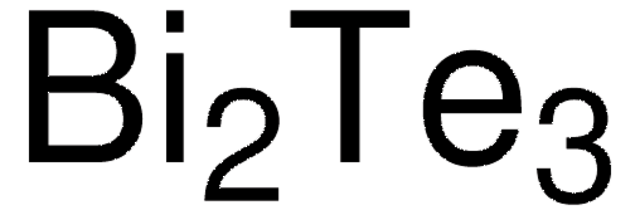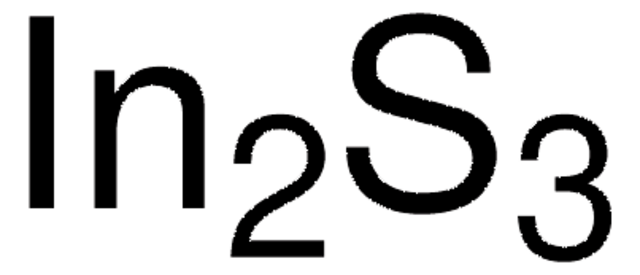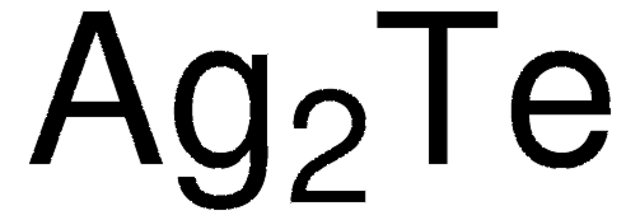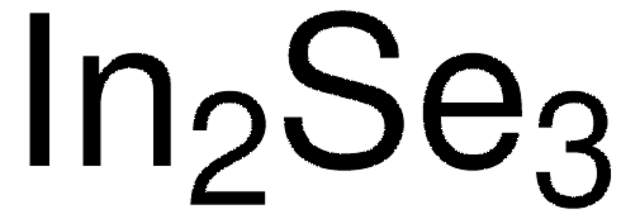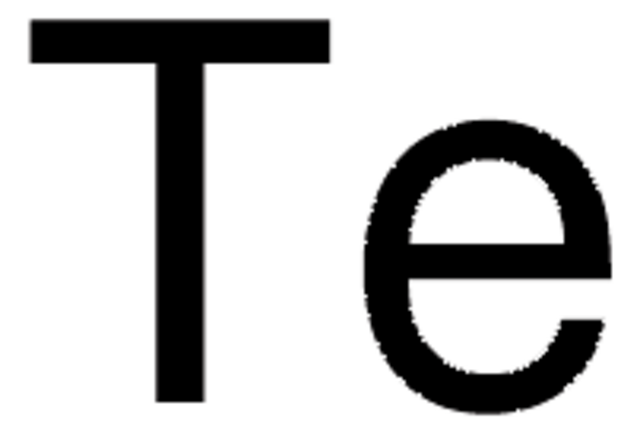About This Item
Recommended Products
Quality Level
Assay
99.998% trace metals basis
form
crystals and lumps
greener alternative product characteristics
Design for Energy Efficiency
Learn more about the Principles of Green Chemistry.
sustainability
Greener Alternative Product
mp
905 °C (lit.)
density
8.164 g/mL at 25 °C (lit.)
greener alternative category
, Enabling
SMILES string
[Te]=[PbH2]
InChI
1S/Pb.Te
InChI key
OCGWQDWYSQAFTO-UHFFFAOYSA-N
General description
Application
Packaging
Signal Word
Danger
Hazard Statements
Precautionary Statements
Hazard Classifications
Acute Tox. 4 Inhalation - Acute Tox. 4 Oral - Aquatic Acute 1 - Aquatic Chronic 1 - Carc. 2 - Repr. 1A - STOT RE 2
Storage Class Code
6.1C - Combustible acute toxic Cat.3 / toxic compounds or compounds which causing chronic effects
WGK
WGK 3
Flash Point(F)
Not applicable
Flash Point(C)
Not applicable
Personal Protective Equipment
Choose from one of the most recent versions:
Already Own This Product?
Find documentation for the products that you have recently purchased in the Document Library.
Customers Also Viewed
Articles
Thermoelectric materials comprise a wide range of solid compounds distinguished by their ability to convert thermal and electrical energy.
The price of tellurium, a key component in many thermoelectric materials, has risen in recent years, leading to the search for more cost-effective substitutes. This article presents silicide materials as a cheaper potential alternative.
In recent years, the price of tellurium, a key component in the bestperforming thermoelectric materials, has increased significantly, leading to the question, “Is it economically viable to produce thermoelectric generators on an industrial scale?
Our team of scientists has experience in all areas of research including Life Science, Material Science, Chemical Synthesis, Chromatography, Analytical and many others.
Contact Technical Service

